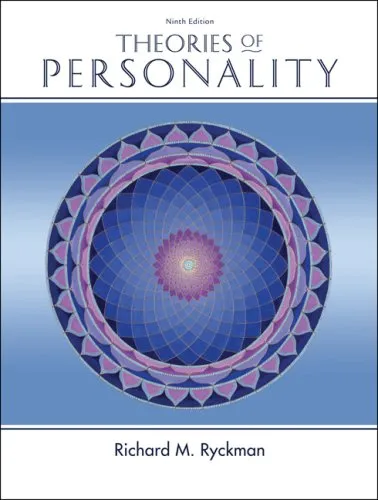Theories of Personality
4.5
Reviews from our users

You Can Ask your questions from this book's AI after Login
Each download or ask from book AI costs 2 points. To earn more free points, please visit the Points Guide Page and complete some valuable actions.Introduction to "Theories of Personality"
The study of personality is one of the core components of psychology, offering rich insights into the unique characteristics, behaviors, and thought processes that define us as individuals. "Theories of Personality," authored by Jess Feist and Gregory J. Feist, serves as a comprehensive guide to understanding how different theories explain the nuances of human personality. The book is renowned for its balanced approach, presenting classic and contemporary perspectives on the subject, and it bridges the gap between research findings, real-world application, and theoretical understanding.
Detailed Summary of the Book
The book "Theories of Personality" provides an in-depth analysis of various theories that attempt to explain how and why personality develops. The content is structured around key psychological schools of thought, including psychoanalytic, humanistic, and cognitive perspectives, as well as biological and trait-based approaches. Each theory is presented with a detailed explanation of its origin, its main proponents, and the research evidence that supports or critiques it.
Early chapters focus on foundational figures like Freud, Jung, and Adler, diving into their psychoanalytic insights about the unconscious mind and early childhood experiences. The book then progresses to explore the humanistic perspectives of Carl Rogers and Abraham Maslow, emphasizing self-actualization and personal growth. Modern contributions, such as the Big Five personality traits and the advancements in evolutionary psychology, receive equal attention, ensuring the integration of contemporary research alongside historical fundamentals.
Throughout the book, the authors skillfully present each theory’s strengths and weaknesses, enabling readers to critically evaluate them. Several case studies, thought-provoking questions, and real-world applications are included to demonstrate how these theories influence modern psychological practices. The book does not merely recount history; it challenges readers to think about the relevance of these theories today, making it an essential text for learning, application, and further exploration into the world of personality psychology.
Key Takeaways
- Comprehensive coverage of major personality theories, from psychoanalytic to contemporary approaches.
- A balanced discussion of classic theoretical principles and modern empirical findings.
- Engages readers with real-life examples, making abstract concepts more relatable.
- Encourages critical thinking through discussions on the validity and applicability of each theory.
- An essential resource for students, educators, professionals, and anyone interested in understanding human nature.
Famous Quotes from the Book
"Personality theories are not confined to the classroom or laboratory; they influence every aspect of human culture, from literature to everyday interactions."
"Human beings are more than the sum of their traits or unconscious drives; they are creatures capable of growth, change, and profound self-reflection."
Why This Book Matters
The importance of "Theories of Personality" lies in its ability to connect abstract psychological concepts with practical implications for everyday life. It provides an invaluable framework for understanding not only ourselves but also others, fostering empathy and improved communication. Whether you are a psychology student, a practicing therapist, or simply a curious reader, this book is an indispensable tool for navigating the complexities of human behavior.
Moreover, it emphasizes the interdisciplinary nature of personality studies, discussing how biology, environment, and culture intersect to shape who we are. The book challenges readers to think about the dynamic interplay of multiple factors—genes, upbringing, societal influences—and how they shape personality creation and evolution.
In an era where self-awareness and emotional intelligence are increasingly valued, "Theories of Personality" helps readers develop these critical skills. By offering both depth and breadth, the book not only educates but also inspires deeper questions about what it means to be human.
Free Direct Download
You Can Download this book after Login
Accessing books through legal platforms and public libraries not only supports the rights of authors and publishers but also contributes to the sustainability of reading culture. Before downloading, please take a moment to consider these options.
Find this book on other platforms:
WorldCat helps you find books in libraries worldwide.
See ratings, reviews, and discussions on Goodreads.
Find and buy rare or used books on AbeBooks.


